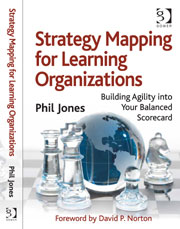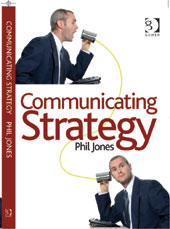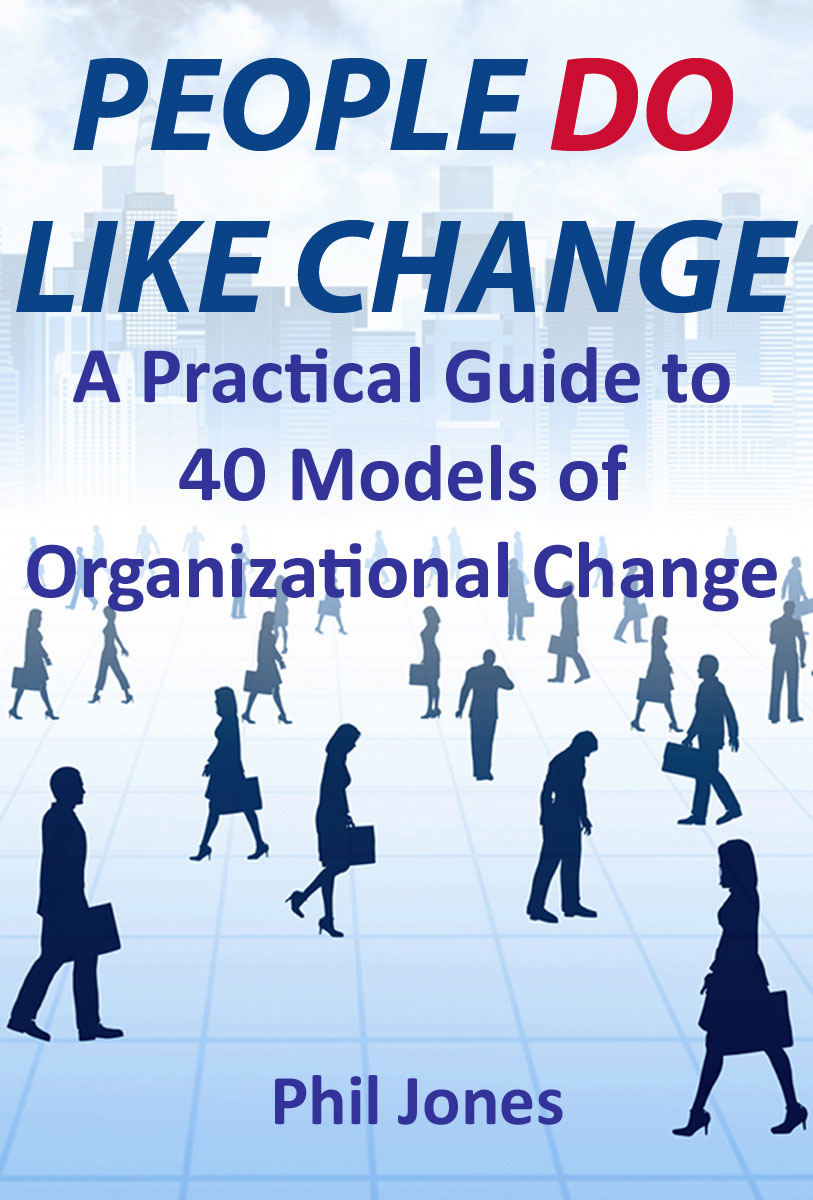Our Consultancy Approach is underpinned by Research.
Over the years we have researched various areas relating to our work on the Management of Strategy, Performance and Change in organisations. Some is published. Other parts we share only with our clients.
Our research approach includes:
- Interviews with high performing executives.
- Keeping up to date on the latest management thinking through books, academic publications and thought leaders.
- Reading around the subject in areas such as behaviour, economics, psychology, sociology and learning.
- Critical review of our own work with our associates & clients.
Our research areas follow the themes of “Strategy, People, Performance, Results”. They are:
- The Balanced Scorecard as a tool of strategy and performance management [Book awaiting publication]
- Strategic thinking: Strategy and Strategy Management
- How do excellent Managers communicate their strategy effectively?[Book published]
- Fourth Generation Balanced Scorecards in the Public Sector and Not for Profit organisations
- Models of Organizational and Behavioural change. [Book awaiting publication]
- The Culture of Performance
(There are further details of these research areas below). Despite all this, we still talk in plain English.
A Note from Phil Jones, Founder and Managing Director, Excitant
“Hello,
I have been fortunate enough to interview over 220 Executives, from over 60 organisations, exploring how they manage their strategy, people and performance. I have worked with organisations as diverse as investment banks and small charities, international retailers and city councils, the NHS and dot.com start-ups.
In recent years, with both interviews and client engagements, I am seeing shifts in the approach successful executives and managers are taking: Most organisations have adopted various strategy and performance management approaches. They served us well in good times. Though the successful executives also realised that those techniques were necessary for good performance, but certainly not sufficient for good performance.
When the credit crisis hit, many were let down. Insufficient warning. Too narrow a view. Hard to change direction. Hard to change behaviours. They realised that the world moved on… and so must they. Consequently, they moved away from some of the assumptions, practices and ways of working that failed them.
These successful executives are moving towards approaches that give their organisations much more agility and responsiveness. Approaches that engage their staff better, improving their judgement and decision making. Approaches that focus on behaviours, not simply measures and targets. Approaches that help the people and the organisation become more effective and competitive; just as today’s world demands.
We have developed their thinking and ways of working into Excitant’s approach. You will find some of this in our Fourth Generation Balanced Scorecard approach. Other parts you will find in my books and on this website….
…but if you really want to learn the lessons of these Successful Executives and Managers, so you can apply them in your organisation, then we’ll have to work together.
To find out more, simply get in touch.”
Phil Jones, Author, Speaker, Consultant Managing Director, Excitant Ltd
Our Research
Open up the toggles below to find out more about our research in each area.
Research Areas
- Having worked for the originators, Norton & Kaplan, this is a central focus of our research: moving forward the thinking and application of the balanced scorecard approach as a tool of strategy implementation and strategy management.
- Underlying thinking and principles: A consequence of the phrase “Balanced scorecard” becoming commoditised is that the underlying principles get ignored, discarded or are simply not understood. Much of our research is to expose the underlying thinking, beliefs and practices that underpin successful strategic Balanced Scorecards. [Published as various chapters of Strategy Mapping]
- The Culture & Discipline of Performance:See below
- Capturing Strategy, Business Models & Service Delivery Models, in Strategy Maps & Balanced Scorecards: As the Balanced Scorecard is a tool for capturing, communicating and Managing Strategy, it is vital that the approach can explicitly capture the various aspects of strategy in its techniques. [Published as chapters of Strategy Mapping]
- The management of strategy as a learning process. Thinking of strategy execution as a process of learning has underpinned our strategic balanced scorecard thinking for 15 years. As your strategy is a choice, it may be wrong, not entirely correct, or become wrong. Something you will only learn as you execute it. So the management of strategy is a learning process, adapting your strategy as you progress. [Published as several chapters of Strategy Mapping]
- The Balanced Scorecard and Risk Management: Many believe that the balanced scorecard ignores risk. In contrast, our research suggests that the Strategic Balanced Scorecard Approach addresses specific classes of risk, explicitly managed using our Fourth Generation Balanced Scorecard approach. This research led to a chapter in Strategy Mapping for Learning Organizations. [Published as Chapter of Strategy Mapping]
- Agile Strategy Management processes and Management behaviour: Increasingly we find that organisations are moving towards a more agile way of managing their organisation and managing strategy and planning. Especially since the financial crisis.
Publication
This work has lead to our Fourth Generation Balanced Scorecard Approach
Publication: Strategy Mapping for Learning Organizations: Putting Agility into your Balanced Scorecard.
Published by Gower Dec 2011
“Developments in Strategic Thinking and Strategic Management”
Research
Working on strategy with many management teams, in many organisations, across many industries, over the years, has tuned our awareness to the variety of ways of thinking about strategy.
It has also made us aware of the many ways in which to manage strategy and its implementation in organisations.
We continue to research these areas, with particular attention on:
- What makes a good strategy, a bad strategy, a complete strategy, and variations in-between
- The tension of strategy as a persistent behaviour over time, in a climate of continuous change
- Strategic thinking in the age of new business models, social media, embedded customers and flexible organisations
- Strategy management as a continuous process of learning
- Developing the quality of conversation about strategy in organisations; amongst the executives, through the organisation, amongst teams and with customers and partners.
Publication
This work has led to the development of our “Strategic thinking course”. It is fundamental to our approach to facilitating strategy development workshops with clients.
It also informs how we help clients develop a more flexible and responsive set of management processes around strategy, planning, budgeting and performance.
How do excellent managers communicate their strategy effectively to engage their staff”
Research
For a long time we have held the view “All plans should be burnt“, because it is what is in people’s heads that matters as they execute strategy on a day to day basis. This naturally leads to the question, “How do we communicate our strategy effectively?
For this work we interviewed various executives who have managed change in their organisations about how they thought about the communication of their strategy. We also went to the research on communication as well as the practical experience that we have seen and experienced through our consultancy.
This work now continues in the Culture of Performance research, “Its about behaviours, stupid!” (see below)
Publication
This work resulted in the writing of “Communicating Strategy“, which was published by Gower 2008
The research continues, focusing on the socialisation of strategy and particularly the role of Social Media in organisations.
Effective strategy and performance management in the Public Sector”
Research
The Public Sector is undergoing major initiatives to dramatically cut costs, whilst protecting services and its underlying capability to deliver. We believe this requires fundamental changes to Public Sector service delivery models, ways of working and and collaboration and partnerships.
We have had much success applying the fundamental thinking of our Fourth Generation Balanced Scorecard approach in the Public Sector. This includes:
- Modelling service delivery across complex multi-agency environments
- Improved Governance covering: Strategy, Operations, Regulation and Risk.
- Improved benefit mapping that avoids the problems of the simplistic inputs, outputs and outcomes approach.
- Creating joined up working within and across organisations. This includes working with third sector and commercial organisations.
- Creating and changing the culture of performance
Publication
We already have a considerable number of case studies of successful Public Sector and Not-For-Profit implementations. We have also developed training courses and briefings specifically for Public Sector and Not for Profit organisations.
We are discussing with our publisher a Public Sector version of “Strategy Mapping for Learning organizations”
Models of Organizational & Behavioural Change”
Research
In any strategy, performance management or change project it is vital to understand the explicit and implicit models of change.
We were getting very positive comments about the amount of change we were creating in organisations, but we wanted to be more explicit about the models of change we were using. This would make us more effective and also make it easier to pass these change skills onto our clients. It would also inform the behavioural aspects of our work on fourth generation balanced scorecards.
This research was designed to understand the range of change models that are out there so that explicit choices could be made about the choice of models in use, and also to provide alternative choices.
This work informs a lot of the behavioural and cultural change work that our projects involve.
Publication:
“People do like change: A guide to choosing models of organizational change.”
To be published as an e-book
This work continues with our exploration of the culture of performance and how learnt behaviours are changed (see below)
The Culture of Performance: It’s about Behaviours, Stupid!”
Research
The purpose of this research is to understand how excellent managers are identifying, changing and developing the persistent, learnt, and socialised, culture and behaviours that support how performance is really managed in their organisations. It is leading towards a book with a working title of “It’s about behaviours, stupid! Developing a Culture of Performance”.
The most obvious way in which the performance of an organisation is managed is through objectives, measures, and targets, where meetings review progress, instigate projects, agree actions and ensure the actions are completed. This assumes that measures motivate, what gets measured gets managed, and what has targets and incentives will be done first. This is the obvious part of performance, but it is not as effective as this simple view would suggest. It has even been known to be counter-productive. You do have to have this basic discipline of performance. It is necessary, but not sufficient. Far more subtle influences are at work: the ‘culture of performance’.
The culture of performance embraces and governs the discipline of performance. It is a far more pervasive influence. It can make the organisation a special place to be, or frustrate any attempt to change. It includes the behaviours that managers encourage, the expectations that are set, the boundaries of behaviour, the permissions to act and the stories of ‘how we work around here’. It includes the explicit and implicit messages that accompany targets, incentives and rewards. This all creates learnt beliefs and behaviours. It can be hard to identify how they were learnt and how they can be changed. How do Executives explicitly create, re-educate, and changed this culture of performance?
Status
This is current research. We are looking for Executives to interview who have:
- Created an exceptional climate of performance in their organisation.
- Implemented significant behavioural change, sustaining that change, to change performance.
- Experienced significant external change that required changes to previous learnt behaviours.
If you think you qualify, please contact us. Find out more about this topic
For more information
We give talks, seminars and briefings on various aspects of our research and work.
To get up to date with the latest thinking: Call us.
If you are interested in improving how your organisation manages your strategy and performance, talk to us




